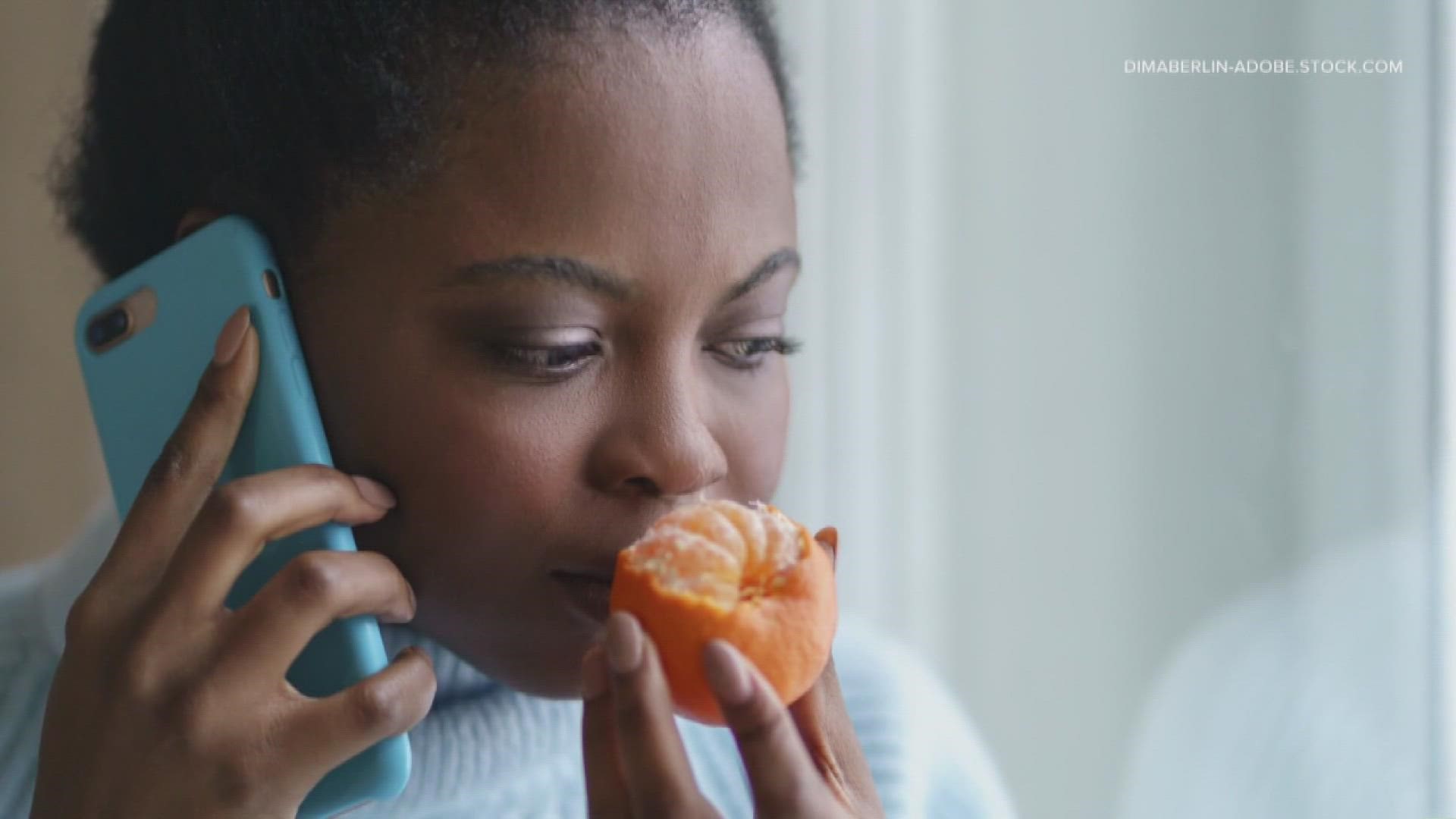NEW ORLEANS — The loss of smell and taste is a fairly common symptom of COVID-19. About 80% of people infected with the Alpha or Delta variant experiences it. It can be scary, but something called 'smell training' may help. We verify if it works.
If you're one of many experiencing Anosmia or the loss of taste and smell from COVID-19, then you know how bothersome it can be.
There's something called 'smell training' you may have heard about, where you smell different scents daily for a period of time. Sure it sounds silly, but does it work?
Well, let's Verify, can 'smell training' help bring back one's smell and taste from COVID-19?
The experts we spoke with include, Dr. Michele Longo. She's the Director of Tulane's Neurology Long COVID Clinic. We also spoke with Dr. Stephen Hernandez. He's with LSU Health's Otolaryngology, Head and Neck Surgery.
First let's break down why COVID-19 causes this to happen.
"The part of the body that is involved with your sense of smell it gets irritated, inflamed from a virus," said Dr. Longo. "And that inflammation causes your sense of smell to be gone or smell things differently than how they're supposed to smell."
The symptom isn't common with the Omicron variant, but other variants are still circulating, so people are finding themselves unable to smell their favorite things. This brings us to 'smell training.'
"There are different ways to do this, but usually you'll start with four smells," described Hernandez. "You tend to smell each scent for about 10-15 seconds twice a day. Whether that's a cup of coffee, whether it's Bourbon or cinnamon, basil, mint, whatever it might be and that's all it is. Smell the scent, and kind of tell yourself what you're smelling, if you have memories of what you're smelling think about that."
Experts describe it as physical therapy for the nose.
"It's helping to make the connections to get those connections throughout the brain and you're using different things, you're using your memory, you're using vision, your imagination and all of that works together to help stimulate the function of that impaired cell and its connections," said Longo. "Six months ago I was telling patients to try this because it helps for other conditions, now I can say try this because there's evidence it works for COVID-19."
Longo says that people need to be patient because it takes time. Some could see results in a few weeks, for others it could take months. However, smell training may help the process move quicker.
"The best thing about this is there's no risk at all," said Dr. Hernandez. "It's low cost, and essentially has zero side effects. It's easy to do that's proven to have benefits for the majority of patients."
So this claim is verified as true. According to the experts, yes, 'smell training' works and is recommended for those experiencing this symptom.
Dr. Longo says when it comes to gaining one's sense of smell in most cases it'll come back.
"Most people that've had problems with their smell from COVID regain it within a couple of weeks," she said. "96% of people will regain it over the course of a year, so there's a lot of hope for people struggling with this."
"This is a way of trying to rehabilitate the sense of smell and it sounds silly, but it works and I've had patients that do this with success," said Dr. Hernandez.
They also want to remind people who are experiencing a loss of smell and taste to be extra vigilant about making sure their fire alarms/smoke detectors are working. Without smell, you might not be able to detect smoke in the home or detect some other emergency. So it's important to make sure that the equipment is working properly.
It's also important to label food and be mindful of expiration dates since you may not be able to detect if a food/beverage has gone bad.
If you'd like something VERIFIED, you can send an email with your question to pressrelease@wwltv.com.

